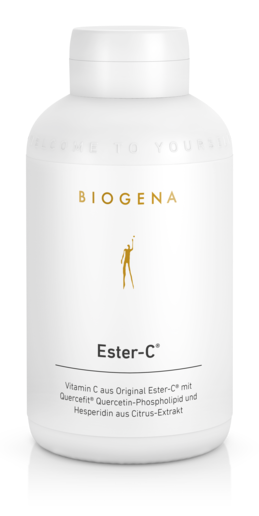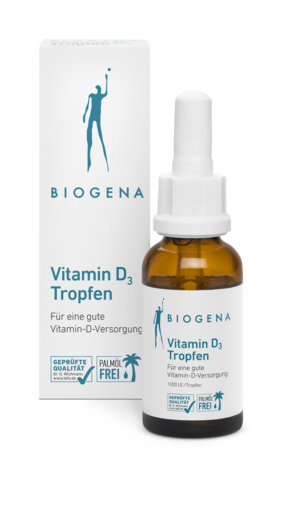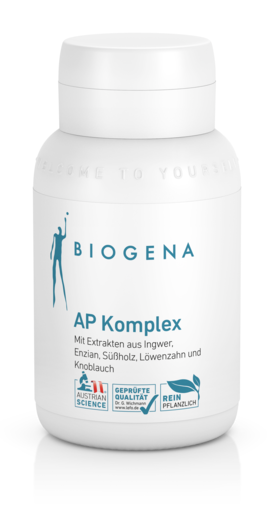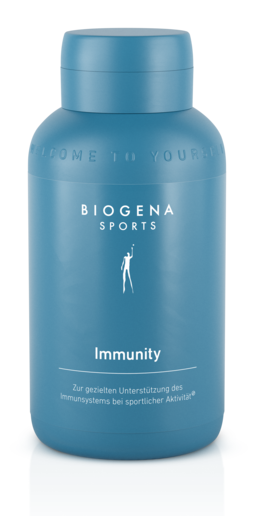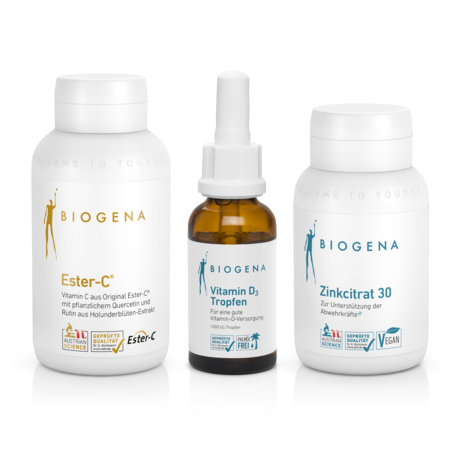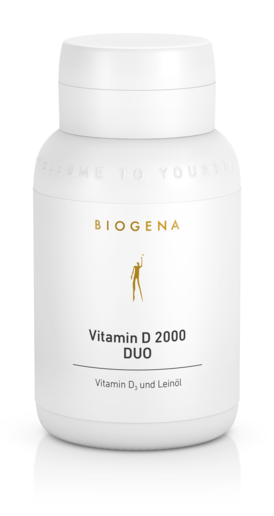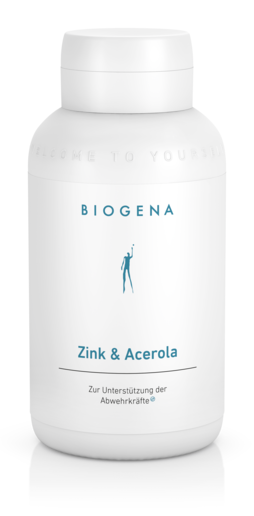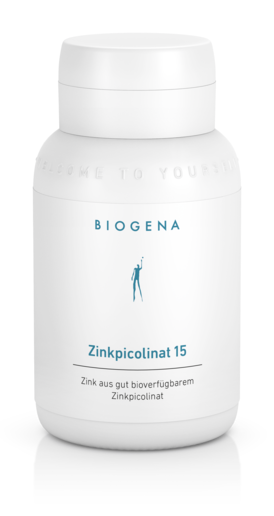Immune system & defences
A balanced diet and exercise in the fresh air contribute to a reliable immune defence. In addition, the immune system can also be specifically supported with vitamins and nutrients in the form of nutritional supplements.


Buy immune system supplements online at BIOGENA
If you’re looking for high-quality micronutrients to support your immune system*, BIOGENA is the place for you. From supplements with just a single active ingredient, to combined products – the wide variety of products in the BIOGENA online store ensures that when it comes to immune defence, you’ll find the right supplement for every requirement.
The secret of the BIOGENA immune system supplements is in the way they’re made: formulas developed with the latest scientific findings, along with high-quality premium raw materials combine to create a top-quality product. All processes - from formulation development and production through to product and raw material quality - are subject to continuous, uncompromising quality testing.
One thing that all of our immune system supplements have in common is the total absence of unnecessary additives such as synthetic colourings, emulsifiers, binding and separating agents or synthetic coating agents. This "free from" strategy means that all of our supplements offer good tolerability and high bioavailability.
Capsules, tablets, powders etc: which supplements are best for supporting the immune system?
Especially during the cold and wet seasons, many people look for a dietary supplement to support their immune system. These immunity supplements are available in a wide variety of forms – from capsules to tablets, effervescent drinks, gummies, juices and powders. While some people prefer to support their immune system with delicious liquid supplements* (e.g. Multispektrum 24/7® active juice, liposomal vitamin C drops), others prefer easy-to-take, flavourless options such as capsules or tablets.
Generally, it’s impossible to say which dosage form is best. Ultimately, it’s always the quality of the products you choose that counts. As dietary supplements are usually taken for several weeks to months at a time, users should opt for products that are as additive-free as possible. Capsules are usually a good option here, because it’s easier to avoid additives in capsules that are produced to high manufacturing standards, like ours at BIOGENA.
*Vitamin C, D and zinc support the normal function of the immune system
The most important vitamins & nutrients for the immune system
Vitamin D
Vitamin D has numerous functions in our organism. It also supports the function of our immune system. It can be formed by the body itself using sunlight. The ideal conditions for creating vitamin D are found in our hemisphere between March and October in the hours between 12.00 midday and 3.00 in the afternoon. In the cooler seasons, the sun is too low in the sky in our climes for our skin to be able to create vitamin D from it. Even in summer, the UV radiation after 4.00 p.m. is too weak for self-synthesis. Pregnant and breastfeeding women, children, older people, shift workers, dark-skinned people, smokers, and people who cover themselves up should pay particular attention to their vitamin D levels. The German Nutrition Society (DGE) gives an estimated value of 800 IU per day for an appropriate supply in the event of insufficient self-synthesis.
Vitamin C
Vitamin C is the immune classic. It not only supports the immune system but also reduces tiredness and fatigue. In addition, the water-soluble vitamin supports the normal function of blood vessels via its role in collagen formation. In addition, it is also important for our antioxidant defense system: It helps to protect the cells from oxidative stress and to recycle consumed vitamin E. It also increases iron absorption in the body.
However, particularly people with sensitive stomachs should be careful to take the buffered form of vitamin C. If the ascorbic acid is combined with a mineral (e.g. calcium ascorbate), the micronutrient is easier to absorb.
Vitamin A
Vitamin A is mainly known for its contribution to maintaining normal vision. However, it also supports the mucous membranes from the inside, especially the nasal and pharyngeal mucous membranes. Vitamin A also plays a significant role in the renewal of blood cells. The fat-soluble vitamin should always be consumed with a meal.
Zinc
In addition to iron, zinc is the second most common trace element in the body and is required for numerous biochemical processes. Zinc is also one of the most important nutrients for the immune system and protects cells from oxidative stress. Due to better tolerability and absorption, zinc preparations should be consumed in the evening.
Iron
Iron does not play a major role in our energy balance, but is also essential for the immune system. Since full iron stores provide sufficient energy, exhaustion, and fatigue can also be signs of reduced iron levels. When consuming iron preparations, it must be ensured that they are never eaten at the same time as dairy products, green or black tea. Consumption together with vitamin C, on the other hand, increases absorption in the body. The daily iron recommendation of the German Society for Nutrition (DGE) differentiates between children and adults, women and men. Vegetarians and vegans, women of childbearing age, pregnant and breastfeeding women, athletes, children and adolescents as well as senior citizens have an increased need and should pay particular attention to a good iron supply.
Selenium
Selenium is an essential trace element that was discovered in 1818 by the Swedish chemist Berzelius. It was named after the Greek moon goddess Selene due to its silvery-grey sheen. It is a component of many enzymes and proteins. Selenium is important for the normal functioning of our immune system and it also helps protect our cells from oxidative stress. The vital trace element is also involved in many reactions in the body. Meat, fish, eggs, dairy products, nuts, and lentils, for example, are particularly rich in selenium. In plant foods, the selenium content varies depending on the content in the soil. In Europe, the soil is poor in selenium.



